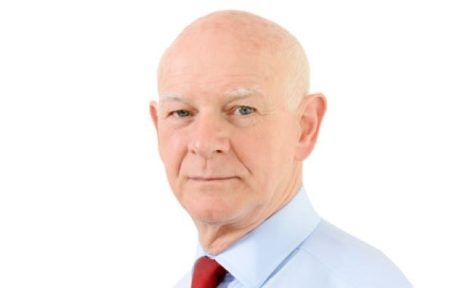Under scrutiny
The need to ensure that anti-money laundering checks are carried out to the letter has never been greater. Richard Reed consults some experts in the field.

When Russian troops surged into Ukraine, it signalled the start of not just one of the bloodiest conflicts in Europe since the Second World War, but the end of the ‘London laundromat’. Russian oligarchs and supporters of other unsavoury regimes had long used the Capital as a way to clean their dirty money. All that changed when the first Russian tank crossed the border. Now the heat is on. When it comes to cracking down on money laundering, the Government has the property industry well and truly in its sights.
Agents already have to carry out ID checks and verify the origins of cash being used to buy a property to ensure it is not the proceeds of crime. In 2017 that duty was extended to buyers, as well as sellers. Now the new Economic Crime Act puts added pressure on agents to make sure that the buyers and sellers of property are not on the sanctions list of Russian oligarchs or other blacklisted individuals.
Now the heat is on. When it comes to cracking down on money laundering, the Government has the property industry well and truly in its sights.
When it comes to the property sales process, the buck stops well and truly with the estate agent handling the transaction. It’s not just a matter of carrying out the appropriate checks – agents must also have an anti-money laundering (AML) risk-assessment procedure in place and anyone handling the sale must have received appropriate AML training. Failure to do so can bring unlimited fines and up to two years in jail. And it’s not just the smaller agents who are likely to be caught out. In 2020 Purplebricks was given a £266,973 fine by HM Revenue & Customers for breaches of money-laundering rules, the largest ever given to a UK estate agency at the time. The previous year, Countrywide had been handed down a £215,000 fine for similar offences.
You are not alone
 The good news is that help is at hand, with several companies now offering, risk-assessment compliance and in some cases automated ID checks. One of the most experienced players in the AML field is Malcolm Driscoll, Senior AML Consultant at FCS Compliance who states agents’ obligation in no uncertain terms. “They have to have AML policies and procedures in place by law,” he says. “They have to know what they are doing. They have to know how to become AML compliant.
The good news is that help is at hand, with several companies now offering, risk-assessment compliance and in some cases automated ID checks. One of the most experienced players in the AML field is Malcolm Driscoll, Senior AML Consultant at FCS Compliance who states agents’ obligation in no uncertain terms. “They have to have AML policies and procedures in place by law,” he says. “They have to know what they are doing. They have to know how to become AML compliant.
For the last six months, HMRC has been doing conference call inspections – random spot checks, though less random, as they are doing so many of them. Malcolm Driscoll, FCS Compliance.
“I’ve been on inspections where an agent has given me four pages, having written down what they think is right – then I show them our manuals and there are 120 pages in there. It has to cover a whole range of activities from AML suspicious activity reports to compliance checks, financial sanctions and anti-bribery regulations.” He adds, “When an agent is doing due diligence and they find something is under investigation or they have concerns about an individual, where they suspect illegal activity, they are obliged to submit a suspicious activity report to the National Crime Agency.”
One worrying development for agents is that HMRC, which now regulates AML, has dramatically increased the amount of checks being carried out. “For the last six months, HMRC has been doing conference call inspections – random spot checks, though less random, as they are doing so many of them,” says Malcolm. FCS offers both training and a full outsourcing service to agents and will carry out checks on their behalf, though it tends to deal with the more complex cases involving properties owned by companies and trusts. If an agent is subject to a spot check, FCS can arrange to be on hand and explain to HMRC the procedures that have been put in place. However, he stresses that the “buck stops with the agent” when it comes to who is liable in the eyes of the law. “They have to go through and check that what we have done is correct,” he explains.
FCS Compliance training prices range from £55+VAT to £145+VAT per person.
Automating compliance
 While FCS specialises in handling the more complex cases, other providers focus on automation. One of the biggest and best-known companies in this area is SmartSearch. “Estate agents have a vital role in the defence against money-laundering,” says Managing Director Martin Cheek. “They are at the forefront of buying and selling and with the recent sanctions on those with connections to Russia, accurate checks have never been more crucial. However, the process of requesting a picture of photo ID and a selfie holding the ID, sending emails and reviewing documents can take valuable time. Add in the need to check sanctions and Politically Exposed Persons (PEP) lists and estate agents can spend a lot of time ensuring that someone is who they claim to be, and that they are legitimate.” Systems like SmartSearch can quickly and efficiently establish all the basic information in seconds.
While FCS specialises in handling the more complex cases, other providers focus on automation. One of the biggest and best-known companies in this area is SmartSearch. “Estate agents have a vital role in the defence against money-laundering,” says Managing Director Martin Cheek. “They are at the forefront of buying and selling and with the recent sanctions on those with connections to Russia, accurate checks have never been more crucial. However, the process of requesting a picture of photo ID and a selfie holding the ID, sending emails and reviewing documents can take valuable time. Add in the need to check sanctions and Politically Exposed Persons (PEP) lists and estate agents can spend a lot of time ensuring that someone is who they claim to be, and that they are legitimate.” Systems like SmartSearch can quickly and efficiently establish all the basic information in seconds.
Estate agents are at the forefront of buying and selling and with the recent sanctions on those with connections to Russia, accurate checks have never been more crucial. Martin Cheek, SmartSearch.
SmartSearch’s advanced technology can then identify the few cases that are flagged as suspicious and avoid unnecessary back-and- forth with the 99 per cent of legitimate clients. Electronic verification platforms ensure estate agents are doing their due diligence and accurately conducting risk assessments. SmartSearch also includes the ability to constantly monitor for status changes following the introduction of new sanctions.
ID checks and Land Registry
Another company offering automated AML compliance is Landmark Estate Agency Services. It has a software platform that will carry out ID checks, and gives agents complete access to the Land Registry, with full titles and leases, so they can identify beneficial owners. Roughly 2,000 firms use the platform, which will also run money-laundering and sanctions checks, with a basic check taking just 30 seconds. It is also about to get a new facial recognition feature.
 Business Development Director Sam Peacock says, “Frankly it’s hard for agents and that’s where businesses like ourselves step in and try to bring in some order to their business. It’s a time-consuming, costly exercise that they don’t get paid for.
Business Development Director Sam Peacock says, “Frankly it’s hard for agents and that’s where businesses like ourselves step in and try to bring in some order to their business. It’s a time-consuming, costly exercise that they don’t get paid for.
“What we noticed when we started doing the AML as an offering was that agents’ knowledge completely varies. They understand they have to do ID checks but don’t understand the full extent – you’ve got to do politically exposed persons check, sanctions checks, you’ve got to have a policy, a risk-assessment procedure. When agents are getting fined, it’s not because they are letting money laundering happen, it’s because of procedural failings in terms of not having a policy in place.”
When agents are getting fined, it’s not because they are letting money laundering happen, it’s because of procedural failings in terms of not having a policy in place. Sam Peacock, Landmark.
She explains that all Landmark’s agents get a dedicated customer success manager so they have someone to ring for support with those queries. “Learning how to use our system is very quick and easy, but what agents need is someone to go to when they have a really tricky case and don’t know what to do. The support is invaluable to them because it’s really tricky to come by. It’s giving that handholding alongside the platform.”
She says Landmark supports agents by talking them through what checks to do, but also gives them template policies and risk assessments. They also have access to online training through the Landmark Academy, with certificates at the end of the process. “One thing that HMRC is very hot on is that agents are training their staff. This is just a free way of getting evidence of the training they have done in digestible chunks.”
 Landmark’s sales manager Simon Birley agrees with Malcolm Driscoll at FCS that
Landmark’s sales manager Simon Birley agrees with Malcolm Driscoll at FCS that
HMRC is getting much tougher in its approach to agents. “Since Covid they have been doing spot checks over the phone,” he explains. “They will arrange a time to talk, and they will then have a three or four hour call with HMRC where they grill them on every aspect of the business. They then request case files on 10 current sales, 10 historic sales and 10 high-risk cases. They will then pore over those files, plus they will want to see your risk-assessment and money-laundering policies. They will highlight any inconsistences. It’s pretty scary as a business owner,” Depending on what it finds, HMRC can give advisory notices, or notices together with fines. Now the new Economic Crime Act, rushed through Parliament after the Russian invasion of Ukraine, brings onerous new responsibilities for agents. “As an agent they will be liable if a transactions goes through in which people on the list are involved, if they have been found not to have done due diligence,” says Birley. “If the weren’t on the list before but are now they will be culpable. It could come back to bite them, potentially, if they are not aware of the people who are the ultimate beneficiaries of the properties.”
They have been doing spot checks over the phone. They will have a three or four hour call with HMRC where they grill them on every aspect of the business. Simon Birley, Landmark.
Landmark charges per transaction – the minimum fee is £20 a month, but the checks themselves are cheap; an automated AML check is £2, the Land Registry is £3.
Free service
A relative newcomer to the AML space is Iamproperty, which has gained roughly 1,000 agent branches using the AML module on its Movebutler property platform since launch two years ago. It automatically pulls down all info from Land Registry and prompts the correct questions to ask – which can change, depending on client’s circumstances. There are a number of different routes they can go down, depending on what is appropriate.
Agents should be conducting financial sanctions checks on everybody, anyway – it just provides a bit of a wake-up call that they need to be doing it. Ben Ridgway, Iamproperty.
Agents can either conduct risk assessment and AML checks in the platform or can press a button to send a digital journey to the client to fill it in themselves, while there is also free training and certification via online videos and quizzes. The service is completely free, except for credits used for electronic ID checks, which cost on average about £1.50.
 “There are lots of people out there that just do the ID checks, but the agent still has to do the title and risk assessment themselves, whereas our platform brings that all together in one journey,” says Iamproperty Group Managing Director Ben Ridgway. “Agents should be conducting financial sanctions checks on everybody, anyway – it just provides a bit of a wake-up call that they need to be doing it. Most agents do now take compliance seriously, they just don’t like the cost associated with it.”
“There are lots of people out there that just do the ID checks, but the agent still has to do the title and risk assessment themselves, whereas our platform brings that all together in one journey,” says Iamproperty Group Managing Director Ben Ridgway. “Agents should be conducting financial sanctions checks on everybody, anyway – it just provides a bit of a wake-up call that they need to be doing it. Most agents do now take compliance seriously, they just don’t like the cost associated with it.”
Personal experience
Another AML provider, Thirdfort, was founded by university friends Olly Thornton-Berry and Jack Bidgood after a friend was defrauded out of £25,000 whilst buying a flat in London – despite having gone through countless anti-fraud checks. The duo saw first-hand the devastating effects of fraud, and the cruel irony of their friend being subjected to endless paper-based anti-fraud checks which were hugely frustrating.
Thirdfort’s proprietary risk engine identifies fraud and money laundering risks faster, smoother, and more accurately than manual verification.

Olly Thornton-Berry, co-founder and Managing Director, says, “We’ve seen HMRC ratchet up AML fines and investigations on agents in the past 12 months.
Agents need to do so much more to protect their businesses… verifying ID documents and purchaser’s source of funds, validating the UBO… Jack Bidgood and Olly Thornton-Berry, Thirdfort.
“It’s not sufficient to just screen for PEPs and sanctions through a database check; agents now need to do so much more to protect their businesses. This includes, collecting and verifying ID documents, verifying source of funds when acting for purchaser, and validating the ultimate beneficial owner if a company is buying or selling. Since launching last September, Thirdfort has signed up more than 85 agents, including Winkworth, Strutt and Parker, and Chestertons.
E-sign and ID verification
Meanwhile Yoti began life in 2014 by building a free consumer app that enables an individual to share personal details with businesses and individuals via their phone. Yoti’s Commercial Director James Lancaster says an increasing number of estate agencies have been signing up for its anti-money laundering checks. “As a result of this demand, we have integrated AML checks into our identity verification solutions and e-signing platform,” he states. “It is becoming increasingly demanding for estate agents to organise and manage multiple providers. The trend is to have all the important checks – AML, right to rent, identity checks – under one roof.”
He adds, “We’ve been developing identity verification and e-sign technology for years now and we welcome the fact that UK regulators are now allowing businesses to use technology to help their streamline their processes and meet compliance requirements.”
Life is certainly getting tougher for agents when it comes to compliance, but no-one can quibble about the need to combat money-laundering. A new Cold War has seen to that.





